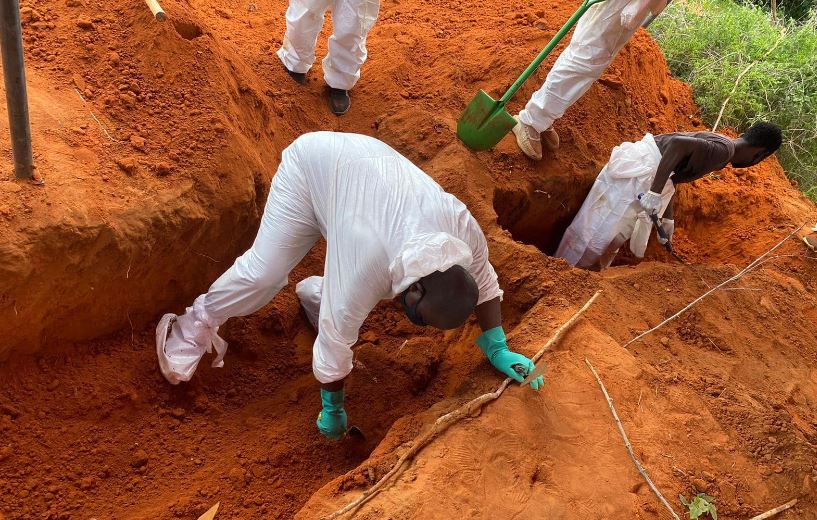Kenya Still Reeling from Cult Massacre 17 Months Later
Seventeen months after one of Kenya’s deadliest cult massacres, the coastal town of Malindi remains deeply affected. The massacre occurred when Paul Mackenzie, a radical evangelical leader, told his followers to starve themselves to meet Jesus. Since the police raided Mackenzie’s Good News International Church, located about 70 kilometers inland, over 430 bodies have been discovered.

Shukran Karisa Mangi, a local gravedigger, has been profoundly impacted by his work unearthing the bodies. Despite his attempts to numb his distress with alcohol, he was deeply shocked to find the body of a close friend, along with other disturbing discoveries including children’s bodies.

Mackenzie has denied charges of murdering 191 children and other serious crimes. If convicted, he faces life imprisonment. His case underscores the dangerous power some evangelical leaders hold, operating beyond legal boundaries and exploiting their followers’ desperation.
Kenya, predominantly Christian, has seen a rise in evangelical churches, often modeled after successful U.S. televangelists. These churches frequently operate with minimal oversight, leading to unchecked authority for pastors like Mackenzie. He gained prominence in 2003 in Malindi, initially praised for his charismatic preaching and claims of miracles.
Mackenzie’s controversial views, including opposition to education and vaccinations, led to his detention in 2019. After relocating his church to Shakahola, a remote forest area, Mackenzie enforced strict rules, including prohibiting communication between villages and advocating extreme fasting.

Autopsies have revealed deaths from starvation, strangulation, and blunt force injuries. The Kenya Red Cross reports that at least 600 people are still missing. Survivors, including Priscillar Riziki who lost family members, continue to seek closure amid the ongoing investigation.
Source: Africa News


GIPHY App Key not set. Please check settings